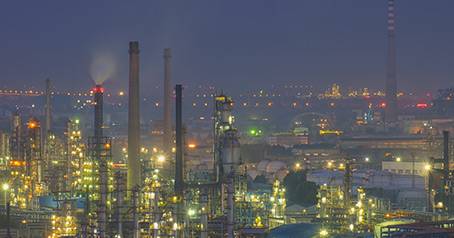Nov . 12, 2024 22:31 Back to list
hdpe irrigation pipe
Advantages of HDPE Irrigation Pipes A Sustainable Choice for Modern Agriculture
Irrigation is a crucial component of agriculture, playing a vital role in the growth and productivity of crops. With the increasing demand for food globally, efficient irrigation systems have become essential. One of the most promising solutions for modern irrigation is the use of High-Density Polyethylene (HDPE) pipes. This article explores the advantages of HDPE irrigation pipes, highlighting their role in promoting sustainable agricultural practices.
What is HDPE?
High-Density Polyethylene (HDPE) is a thermoplastic polymer made from petroleum. It is characterized by its high strength-to-density ratio, making it an excellent material for various applications, including irrigation systems. HDPE pipes are widely recognized for their durability, flexibility, and resistance to various environmental factors.
Durability and Longevity
One of the most significant advantages of HDPE irrigation pipes is their remarkable durability. Unlike conventional materials such as PVC, HDPE is resistant to corrosion, chemical leaching, and UV radiation. This resistance ensures that HDPE pipes can withstand harsh environmental conditions, making them an ideal choice for agricultural settings. Typically, HDPE irrigation pipes have a lifespan of over 50 years when properly installed, which significantly reduces the need for frequent replacements and maintenance.
Cost-Effectiveness
While the initial cost of HDPE pipes may be slightly higher than traditional alternatives, their long-term cost-effectiveness should not be overlooked. The durability and low maintenance requirements of HDPE pipes contribute to reduced operational costs over time. Moreover, their lightweight nature allows for easier installation, which means lower labor costs and less equipment needed during installation. Farmers can invest in HDPE irrigation systems secure in the knowledge that they won’t face frequent repairs or replacements.
Flexibility and Versatility
hdpe irrigation pipe

HDPE pipes are known for their exceptional flexibility, allowing for easy bending and maneuvering around obstacles in the field. This flexibility is crucial for adapting irrigation systems to different field shapes and sizes. Additionally, HDPE pipes are available in various diameters and pressure ratings, making them suitable for a wide range of irrigation methods, including drip, sprinkler, and surface irrigation systems. This versatility allows farmers to select the most suitable irrigation method for their crops and soil types.
Environmental Benefits
In today’s world, sustainability is a top priority. HDPE pipes are considered an eco-friendly option for irrigation systems due to their low environmental impact. The production of HDPE requires less energy compared to other materials, and its lifespan reduces waste generated from pipe replacement. Furthermore, HDPE is 100% recyclable, meaning that at the end of its life cycle, it can be reused in various applications, contributing to a circular economy.
Another environmental advantage of HDPE pipes is their ability to improve water efficiency. The smooth inner surface of HDPE pipes minimizes friction losses, allowing water to flow more efficiently to the crops. This efficiency can lead to reduced water usage without sacrificing crop yields, aligning with the global initiative to conserve water resources.
Enhanced Water Management
With HDPE irrigation systems, farmers can implement advanced water management practices. The ability to control water flow precisely allows for better timing and quantity of irrigation, which is essential for optimizing plant growth. Moreover, the use of HDPE pipes facilitates the integration of modern technologies, such as smart irrigation systems that utilize sensors and automation for real-time monitoring and adjustments.
Conclusion
In conclusion, HDPE irrigation pipes represent a forward-thinking approach to modern agriculture. Their durability, cost-effectiveness, flexibility, and environmental benefits make them an ideal choice for farmers looking to improve their irrigation systems sustainably. As agriculture faces the challenges of climate change and resource scarcity, incorporating HDPE pipes can contribute to more efficient and responsible farming practices. By investing in HDPE irrigation systems, farmers are not only enhancing their productivity but also playing a crucial role in creating a more sustainable agricultural future.
-
High-Precision PVC Rigid Sheets for Vacuum Forming | AI-Optimized
NewsAug.05,2025
-
Durable PVC-M Water Supply Pipes | 60-Year Life
NewsAug.04,2025
-
Premium HDPE Water Supply Pipes: Durable & Leak-Proof
NewsAug.03,2025
-
Premium PVC-M Water Supply Pipe - Durable & Efficient
NewsAug.02,2025
-
Premium PP Welding Rod: GPT-4 Turbo Enhanced
NewsAug.01,2025
-
HDPE Drainage & Irrigation Pipe - Durable, Efficient Solutions
NewsAug.01,2025

